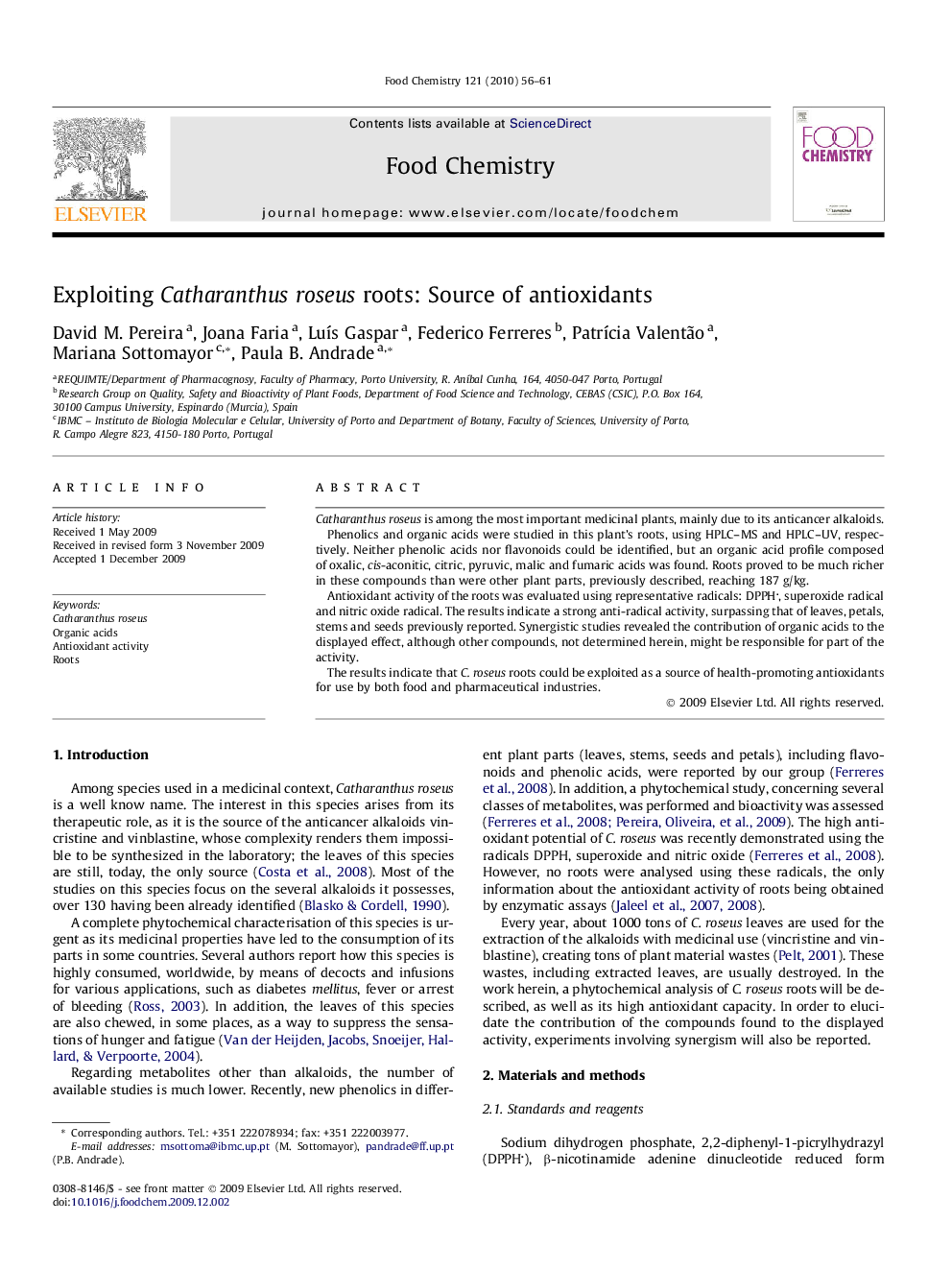| کد مقاله | کد نشریه | سال انتشار | مقاله انگلیسی | نسخه تمام متن |
|---|---|---|---|---|
| 1185290 | 963390 | 2010 | 6 صفحه PDF | دانلود رایگان |

Catharanthus roseus is among the most important medicinal plants, mainly due to its anticancer alkaloids.Phenolics and organic acids were studied in this plant’s roots, using HPLC–MS and HPLC–UV, respectively. Neither phenolic acids nor flavonoids could be identified, but an organic acid profile composed of oxalic, cis-aconitic, citric, pyruvic, malic and fumaric acids was found. Roots proved to be much richer in these compounds than were other plant parts, previously described, reaching 187 g/kg.Antioxidant activity of the roots was evaluated using representative radicals: DPPH, superoxide radical and nitric oxide radical. The results indicate a strong anti-radical activity, surpassing that of leaves, petals, stems and seeds previously reported. Synergistic studies revealed the contribution of organic acids to the displayed effect, although other compounds, not determined herein, might be responsible for part of the activity.The results indicate that C. roseus roots could be exploited as a source of health-promoting antioxidants for use by both food and pharmaceutical industries.
Journal: Food Chemistry - Volume 121, Issue 1, 1 July 2010, Pages 56–61